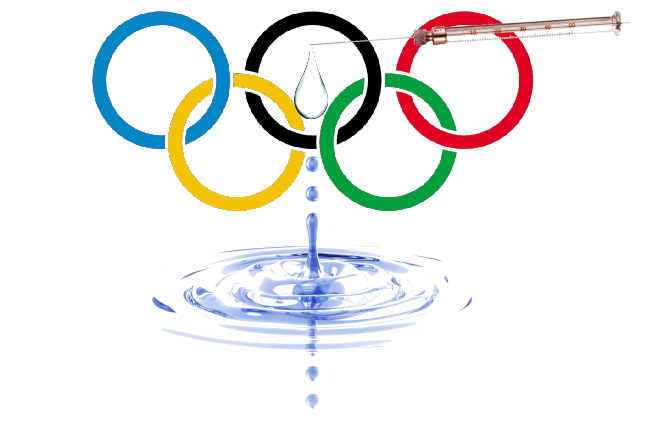Doping refers to the use of banned substances or methods by athletes to enhance their performance in sports competitions. These substances can include performance-enhancing drugs (PEDs), which can artificially boost an athlete’s strength, endurance, or speed, giving them an unfair advantage over their competitors. Doping also encompasses methods such as blood transfusions and manipulation to alter an athlete’s physical condition.

Doping is considered a heinous crime in the world of sports for several compelling reasons:
1. Undermines Fair Competition
2. Betrays the Spirit of Sportsmanship
3. Jeopardizes Health and Safety
4. Erodes Trust and Credibility
5. Diminishes the Value of Achievements
6. Damages Athletes’ Reputations
7. Affects Youth and Aspiring Athletes
8. Creates a Vicious Cycle
9. Threatens the Integrity of Sports
10. Violates Ethical and Moral Values
For all these reasons, doping is widely condemned and efforts to combat it are continuously undertaken by sports organizations, regulatory bodies, and anti-doping agencies to ensure that clean and fair competition remains the cornerstone of sports.
 There have been several instances of athletes failing doping tests in the Olympics over the years. Here are a few notable cases:
There have been several instances of athletes failing doping tests in the Olympics over the years. Here are a few notable cases:
I. Ben Johnson (Canada) – 1988 Summer Olympics:
Ben Johnson, a Canadian sprinter, won the gold medal in the 100 meters at the 1988 Seoul Olympics. However, he tested positive for the banned substance stanozolol and was subsequently disqualified, and his medal was stripped.
II. Marion Jones (USA) – 2000 Summer Olympics:
Marion Jones, an American track and field athlete, won three gold medals and two bronze medals at the 2000 Sydney Olympics. However, in 2007, she admitted to using performance-enhancing drugs and subsequently had her medals and results nullified.
III. Lance Armstrong (USA) – 2000, 2004, 2008, 2012 Summer Olympics:
Cyclist Lance Armstrong won multiple Tour de France titles and competed in the Olympics. He was stripped of his seven Tour de France titles and banned from competitive cycling after being found guilty of doping. While he didn’t fail a doping test in the Olympics, his case is significant due to the magnitude of his offenses.
IV. Nesta Carter (Jamaica) – 2008 Summer Olympics:
Nesta Carter was part of the Jamaican 4×100 meters relay team that won gold at the 2008 Beijing Olympics. However, in 2017, it was revealed that he tested positive for a banned substance, leading to the disqualification of the entire relay team and the loss of their gold medals.
V. Ivan Ukhov (Russia) – 2012 Summer Olympics:
High jumper Ivan Ukhov of Russia won gold in the men’s high jump at the 2012 London Olympics. However, he was implicated in the Russian doping scandal, and his results were later disqualified, including his Olympic gold medal.
VI. Yuliya Zaripova (Russia) – 2012 Summer Olympics:
Russian steeplechase runner Yuliya Zaripova won gold at the 2012 London Olympics. She was later found guilty of doping violations, and her results were annulled, leading to the loss of her Olympic gold medal.
VII. Icarus Documentary – 2014 Winter Olympics:
The documentary “Icarus” highlighted the widespread doping scandal in Russia during the 2014 Sochi Winter Olympics. The film revealed systemic state-sponsored doping, leading to the suspension of many Russian athletes and officials from international competitions.
These cases highlight the challenges that doping poses to the integrity of the Olympic Games and the ongoing efforts by anti-doping organizations to ensure fair competition and clean sports.

The International Olympic Committee (IOC) and various sports organizations have implemented measures to combat doping and enforce strict regulations. Here’s how the IOC can enhance its efforts, to adhere to these regulations:
a. Strengthen WADA Collaboration: The IOC should continue collaborating closely with the World Anti-Doping Agency (WADA) to ensure a unified and comprehensive approach to anti-doping efforts. This includes sharing information, coordinating testing, and implementing consistent rules across all sports.
b. Robust Testing and Sanctions: The IOC should maintain a rigorous testing program both in and out of competition, with an emphasis on unannounced testing. Athletes found guilty of doping should face significant sanctions, including bans from future Olympic Games.
c. Advanced Testing Methods: Invest in research and development of advanced testing methods that can detect new doping substances and techniques. Stay ahead of evolving doping practices to maintain a level playing field.
d. Education and Awareness: Enhance anti-doping education programs for athletes, coaches, and support staff. Educating athletes about the risks and consequences of doping can discourage them from engaging in such practices.
e. Stricter Penalties for Officials: Implement stringent penalties for coaches, trainers, and officials who are involved in or facilitate doping. Holding not just athletes but also their support systems accountable can discourage doping at all levels.
f. Whistleblower Protection: Establish mechanisms to protect whistleblowers who come forward with information about doping practices. This can encourage individuals to report doping-related activities without fear of retaliation.
g. Transparency and Public Reporting: Maintain transparency in anti-doping efforts by regularly publishing information about testing, violations, and sanctions. Public reporting can hold organizations and athletes accountable.
h. Thorough Investigations: Conduct thorough investigations into any allegations of doping, ensuring due process and fairness while taking strong action against those found guilty.
By taking these steps, the International Olympic Committee can continue its efforts to eliminate doping from sports. This will contribute to a fair and level playing field for all athletes and maintain the integrity of the Olympic Games.

